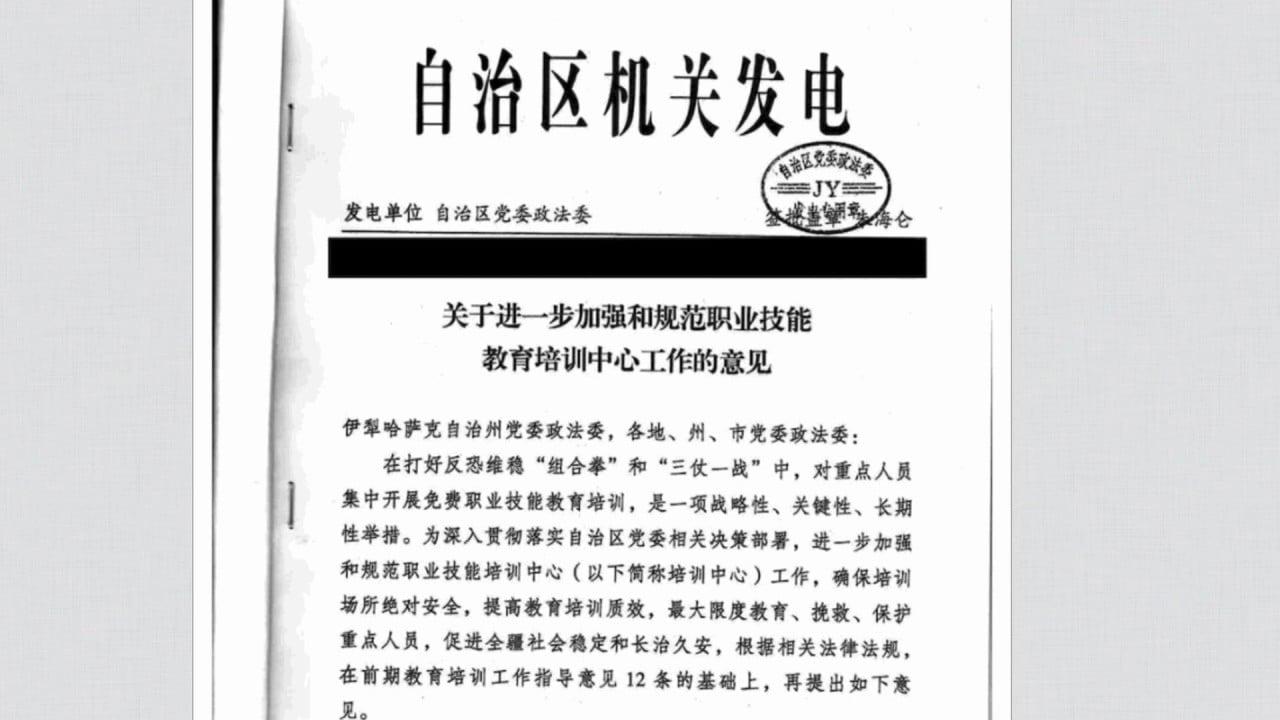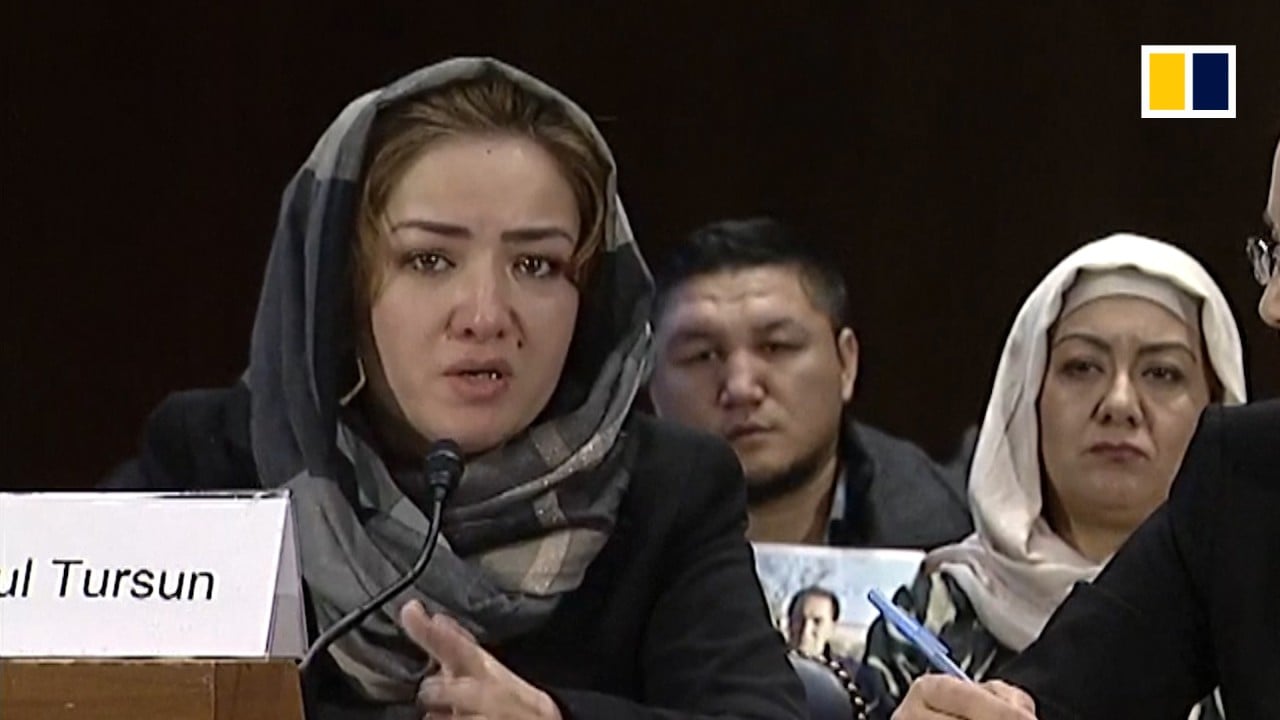
Xinjiang: China to target ‘corrupt’ officials in state TV broadcast
- Latest programme will expose double-dealing Xinjiang officials and ‘previously undisclosed anti-terrorism cases’, nationalistic tabloid Global Times says
- Attempt to justify Beijing’s actions in Xinjiang follows wave of international sanctions on Chinese officials and bodies
According to Global Times, a nationalistic tabloid affiliated with Communist Party mouthpiece People’s Daily, the next documentary, the fourth, will be named The Undercurrents – China’s Xinjiang Anti-terrorism Challenge.
Quoting unnamed sources, Global Times said last Friday that the programme would “reveal previously undisclosed anti-terrorism cases for the first time”, exposing double-dealing Xinjiang officials and dissemination of “violent and terrorist” audio and video by the East Turkestan Islamic Movement (ETIM), which Beijing says is a “black hand” in the region.
The Chinese corruption watchdog typically does not identify “two-faced” elements, despite party mouthpiece Xinjiang Daily describing them as “the most dangerous enemy hidden in the rank and file, doing more harm than terrorists”.
The previous documentaries were about the damage caused by terror attacks, which Beijing said were being organised by ETIM, and sought to justify Beijing’s policies in Xinjiang. Broadcast by China Global Television Network, the overseas arm of state-run China Central Television, the first two documentaries were aired in December 2019 and the third six months later.
According to the authorities, hundreds have been killed in unrest in Xinjiang over the past few decades, reaching a peak in July 2009, when there were at least 192 deaths and more than 1,000 injuries in riots in Urumqi, the regional capital.



